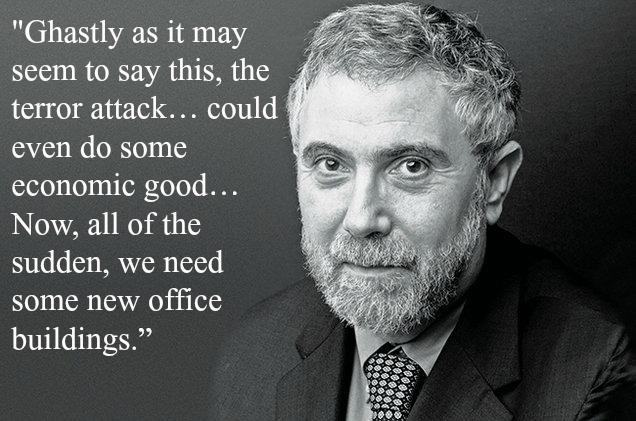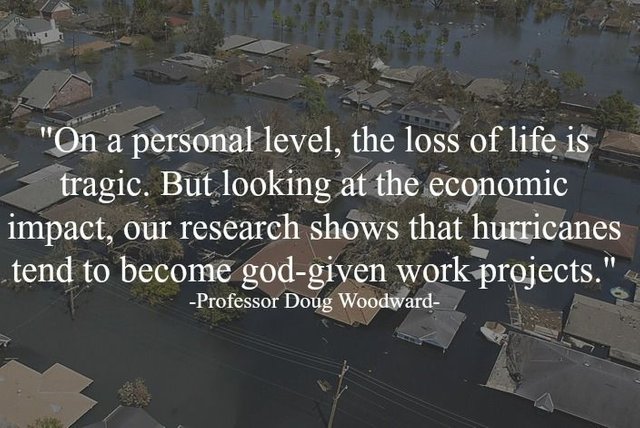The Broken Window Fallacy
Natural disasters, war and terrorist attacks do not stimulate the economy!
Many people today, including at least one well-known, Nobel Prize-Winning Economist, have consistently been duped by one particular logical fallacy that has plagued economics for a very long time and is very widely prevalent today.
In an essay published in 1850, French economist Frederic Bastiat illustrated this logical blunder in a parable known as the Broken Window Fallacy.
Imagine a small bakery in your town or city. One morning, some vandal (let’s say, Antifa member?) throws a rock through the Bakery’s front window and runs off. Soon a small crowd begins to gather, and although things don’t seem too great for the Baker, the crowd understands that the broken window will create a job for a window-maker. They don’t have long to wait and a window-maker shows up within the hour with a new window.
The window is quickly replaced and the Baker pays the window-maker $300.
The onlookers see the new window and they see the $300 that the Baker paid the window-maker. They know that the window-maker will use the $300 to buy goods and services from other businesses, thereby creating more jobs and prosperity for everyone!
This is the error in logic that so many people today still fall victim to.
It is true that the broken window did create a job for the glass-maker. Everyone can easily see that. But what they don’t see is that the Baker no longer has the $300 that he was going to spend on a new, tailored suit later that day. The glass-maker’s gain of business is also the loss of the tailor’s business so no new employment has been created.
If we consider the Baker to be a member of the community, then we can see that if the window had not been broken, the community would have had both a window and a new suit, but because of the broken window, the community will have to settle for just a window and no suit. The community is one suit poorer than it would have been.
Too many people today see disaster and destruction and focus only on the glass-makers of the world and forget about the tailors. When a window breaks, they see a window-maker get a job, but they fail to see the tailor lose his job.
Because of this fallacy, many people still, to this day, believe the false myth that the Great Depression of the 1930’s was ended by WWII. They actually believe that mining a bunch of metals out of the ground and turning them into airplanes, tanks, bombs and bullets, transporting them to the other side of the world and then blowing them up, somehow, magically, pulled America out of the Great Depression.
People who believe this are falling for the Broken Window Fallacy. They can easily see the things being destroyed and people dying and they can also easily see the jobs that are created by this destruction. They falsely believe that wars create prosperity, which is utterly ridiculous.
Some people even think that terrorist attacks and hurricanes are actually blessings in disguise that help boost economic growth.
After the terrorist attacks on 9/11, Paul Krugman said that:

In 2005, Professor of economics Doug Woodward extolled the economic miracle of hurricane Katrina:

We will doubtless see more and more people enthusiastically praising the economic benefits of terrorist attacks, earthquakes, hurricanes and wars.
Don’t be fooled. Destruction is the opposite of prosperity.
And that’s the story of the Broken Window.